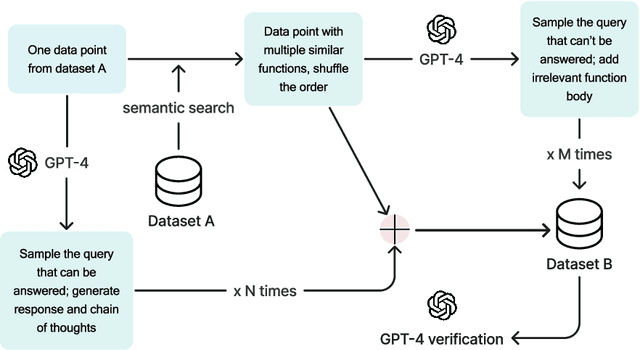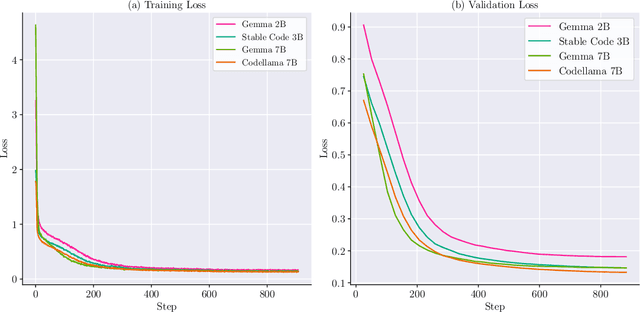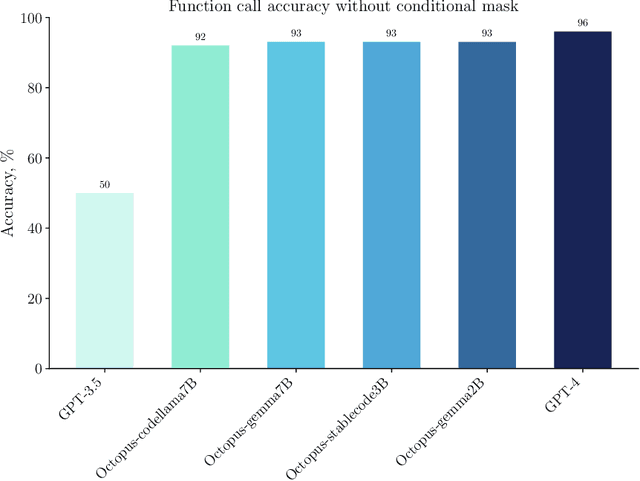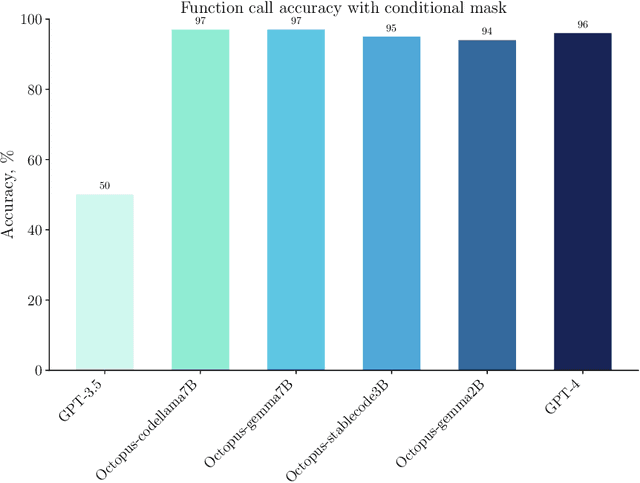Octopus: On-device language model for function calling of software APIs
Paper and Code
Apr 02, 2024



In the rapidly evolving domain of artificial intelligence, Large Language Models (LLMs) play a crucial role due to their advanced text processing and generation abilities. This study introduces a new strategy aimed at harnessing on-device LLMs in invoking software APIs. We meticulously compile a dataset derived from software API documentation and apply fine-tuning to LLMs with capacities of 2B, 3B and 7B parameters, specifically to enhance their proficiency in software API interactions. Our approach concentrates on refining the models' grasp of API structures and syntax, significantly enhancing the accuracy of API function calls. Additionally, we propose \textit{conditional masking} techniques to ensure outputs in the desired formats and reduce error rates while maintaining inference speeds. We also propose a novel benchmark designed to evaluate the effectiveness of LLMs in API interactions, establishing a foundation for subsequent research. Octopus, the fine-tuned model, is proved to have better performance than GPT-4 for the software APIs calling. This research aims to advance automated software development and API integration, representing substantial progress in aligning LLM capabilities with the demands of practical software engineering applications.
 Add to Chrome
Add to Chrome Add to Firefox
Add to Firefox Add to Edge
Add to Edge